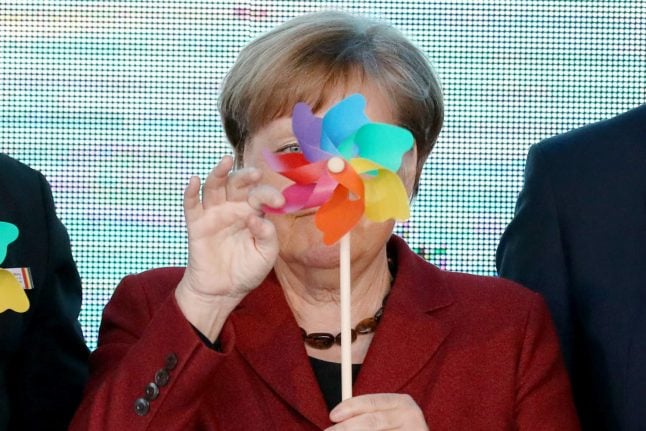The “Energiewende”, or clean energy transition, sometimes described as the biggest national project since reunification three decades ago, has hit a number of speed bumps.
Problems have been linked to Germany's ongoing nuclear phase-out, its reliance on dirty coal, local opposition to new infrastructure, and the powerful, state-coddled auto sector.
These factors have derailed German efforts to bring down emissions by 40 percent from 1990 by next year, though it has pledged to meet the next goal of a 55 percent reduction by 2030.
It's a sweeping project that ranges from encouraging bicycle travel to making home heating more efficient, to the trade in so-called “polluter-pays” emission certificates.
As talks continued within Chancellor Angela Merkel's government on new climate measures, here are key elements in the energy shift – and key problems on the path to a carbon neutral economy by 2050.
READ ALSO: Sparks fly as Germany's climate plan hits rural landscapes
Not in my backyard
Export power Germany – Europe's biggest economy, responsible for two percent of the world's greenhouse emissions — plans to replace nuclear as well as coal, oil and gas power with wind and solar but also biomass, hydro
and geothermal energy.
The goal is to reduce the risk of a nuclear disaster while shifting from finite, dirty and mostly imported fossil fuels and uranium to infinite, clean and locally generated energy.
State incentives have massively boosted wind power, especially on the North and Baltic Sea coasts, where more than 20 off-shore wind farms now have an output equivalent to half a dozen nuclear plants.
READ ALSO: Germany pledges €100 billion in the fight against climate change

A wind farm in Brandenburg. Photo: DPA
Large-scale photovoltaic production is concentrated in the sunnier south, and Germany-wide well over one third of electricity demand is now met with renewables, with plans to raise the share to about two thirds by 2030.
However, Germany has lagged badly behind in building a new type of high-voltage transmission line – dubbed the energy “Autobahn” – several of which are to deliver electricity from the wind-swept north to the more
industrialized south.
Most delays have been due to not-in-my-backyard opposition against the hulking new power lines, meaning construction has slowed to a crawl and that they are now often laid below ground at far greater cost.
Given the fickle nature of weather-based energy, experts warn that smart grids and power networks, and more storage capacity, are essential to flexibly deliver clean energy to where it is needed.
Coal's long farewell
A milestone in Germany's energy revolution came in 2011 when Merkel decided, days after Japan's Fukushima disaster, to phase out nuclear power by 2022.
While many of the reactors have already gone off-line, Germany has increasingly relied on renewables — but also on cheap and abundant lignite and hard coal.
As world coal prices have fallen, along with the cost of emission certificates, Germany has seen its CO2 emissions rise in some years, making coal the new target of green protests and blockade of open-pit mines.
The Merkel government this year announced a coal phase-out by 2038, but faces local opposition from mining regions, especially in the ex-communist east, where the far-right AfD party has capitalized on fears over job losses.
READ ALSO: Six things to know about the upcoming climate strikes in Germany
Powerful auto sector
A major laggard in the climate mega project has been Germany's auto sector dominated by VW, Daimler and BMW, a politically powerful industry that brings huge export profits and employs 800,000 people.
Merkel – who has been dubbed both the “climate chancellor” and the “car chancellor” – has lobbied in Brussels against tougher emissions limits bitterly opposed by the German corporate giants.
While the auto makers have made SUVs and ever-bigger models that have eroded efficiency gains, Germany had to shelve its target of bringing one million electric cars onto the roads by 2020.
VW has since 2015 been caught up in the “dieselgate” emissions cheating scandal and car-makers now face diesel bans in some inner cities, pushing them to announce a major shift toward clean and green mobility.
Despite the changes, Germany has refused to follow the example of Britain and France, which have set cut-off dates to phase out the production of combustion engine vehicles.
READ ALSO: Protests against German car industry draw 25,000
By Frank Zeller



 Please whitelist us to continue reading.
Please whitelist us to continue reading.
Member comments